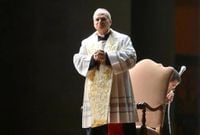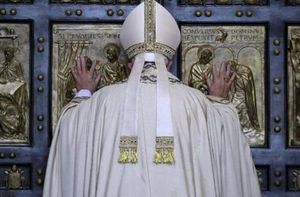On May 8, 2025, the Catholic Church welcomed a new leader as Cardinal Robert Francis Prevost was elected Pope Leo XIV, marking a historic moment as he becomes the first American pope and the first from the Order of San Agustín. The election followed a brief conclave held in the Sistine Chapel, where 133 cardinals gathered to choose the successor to Pope Francis, who passed away on April 21, 2025, after suffering a stroke and cardiovascular collapse.
Prevost, 69, was born on September 14, 1955, in Chicago, Illinois. His journey in the church began in 1977 when he entered the novitiate of the Order of San Agustín, making his solemn vows in 1981. He holds a bachelor's degree in Mathematical Sciences from Villanova University, a master's degree in Divinity from the Catholic Theological Union in Chicago, and both a bachelor's degree and a doctorate in Canon Law from the Pontifical College of Santo Tomás de Aquino in Rome.
After being ordained a priest in 1982, Prevost joined the Augustinian mission in Peru in 1985, where he served as chancellor of the Prelatura Territorial de Chulucanas until 1986. He later returned to the United States but returned to Peru in 1988, dedicating a decade to the mission work there. His leadership skills were recognized when he was appointed apostolic administrator of the Diocese of Chiclayo in 2014 by Pope Francis, and he was elevated to bishop in 2015.
In addition to his pastoral work, Prevost has held significant administrative roles within the church. He served as prior provincial of the Augustinians in Chicago and later as prior general of the order until 2013. In 2023, he was appointed prefect of the Dicastery for Bishops, a crucial position that involves advising the pope on bishop appointments worldwide.
As Pope Leo XIV, Prevost's moderate approach is seen as a bridge between the conservative and reformist factions within the church. His extensive experience in Latin America and his close relationship with Pope Francis have positioned him as a leader capable of navigating the complexities of a divided church. His election is also significant given the historical context; the idea of an American pope had long been dismissed due to geopolitical concerns and the perception of American influence.
During his first address as pope, Prevost emphasized the need for the church to adapt to the modern world, stating, "We cannot stop; we cannot go back. We must see how the Holy Spirit wants the church to be today and tomorrow." His commitment to transparency and support for victims of abuse reflects the ongoing challenges the church faces.
The conclave that led to his election was notable for its diversity and the urgency with which the cardinals sought a new leader. The white smoke that signaled the decision emerged from the chimney of the Sistine Chapel, prompting jubilant celebrations in St. Peter's Square, where crowds gathered to hear the announcement. Cardinal Dominique Mamberti announced the news with the traditional phrase, "Habemus papam," meaning "We have a pope." The excitement was palpable as thousands cheered, holding signs that proclaimed, "We have a pope!"
Prevost's election comes at a time when the Catholic Church faces numerous challenges, including addressing the fallout from sexual abuse scandals, engaging with contemporary social issues, and maintaining unity among its diverse global congregation of approximately 1.4 billion faithful. His background as a missionary in Peru and his administrative experience within the church suggest he will prioritize outreach and pastoral care, especially in regions where the church's presence is critical.
As the first pope from the United States, Prevost's election also brings a new dynamic to the Vatican, which has traditionally been cautious of American influence. His moderate stance is expected to appeal to a wide range of Catholics, including those who have felt alienated by more conservative approaches. His vision aligns closely with that of his predecessor, Pope Francis, particularly regarding environmental issues, poverty alleviation, and support for marginalized communities.
Prevost's journey to the papacy is a testament to his dedication and service within the church. His ability to speak multiple languages and his deep understanding of both American and Latin American cultures will serve him well as he takes on the responsibilities of leading the global Catholic community.
The church now looks to Pope Leo XIV to guide it through a transformative period, balancing tradition with the need for reform. His leadership will undoubtedly shape the future of the Catholic Church as it seeks to navigate the complexities of modern society while remaining true to its core mission of proclaiming the Gospel.




